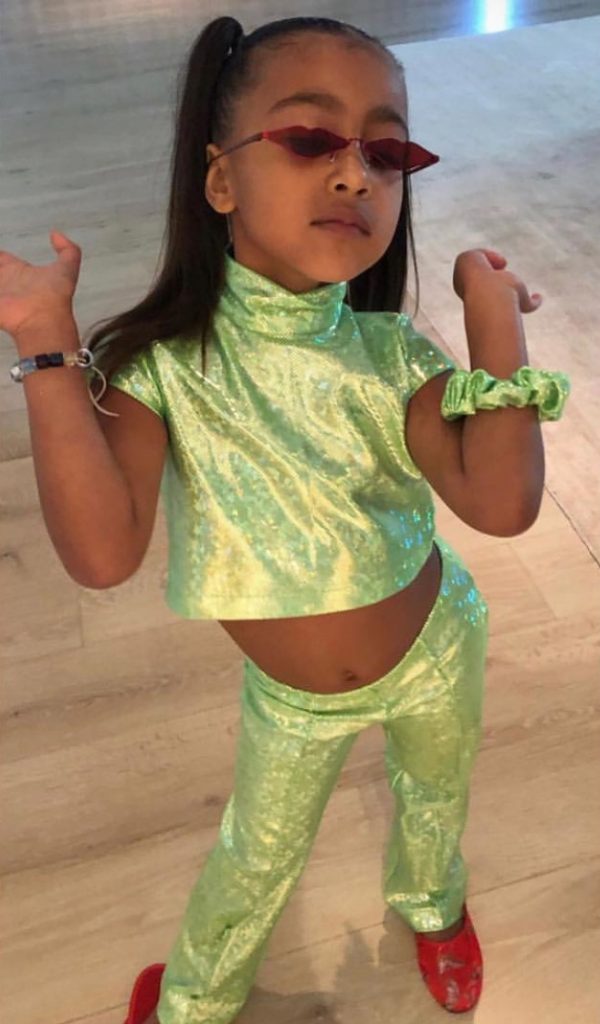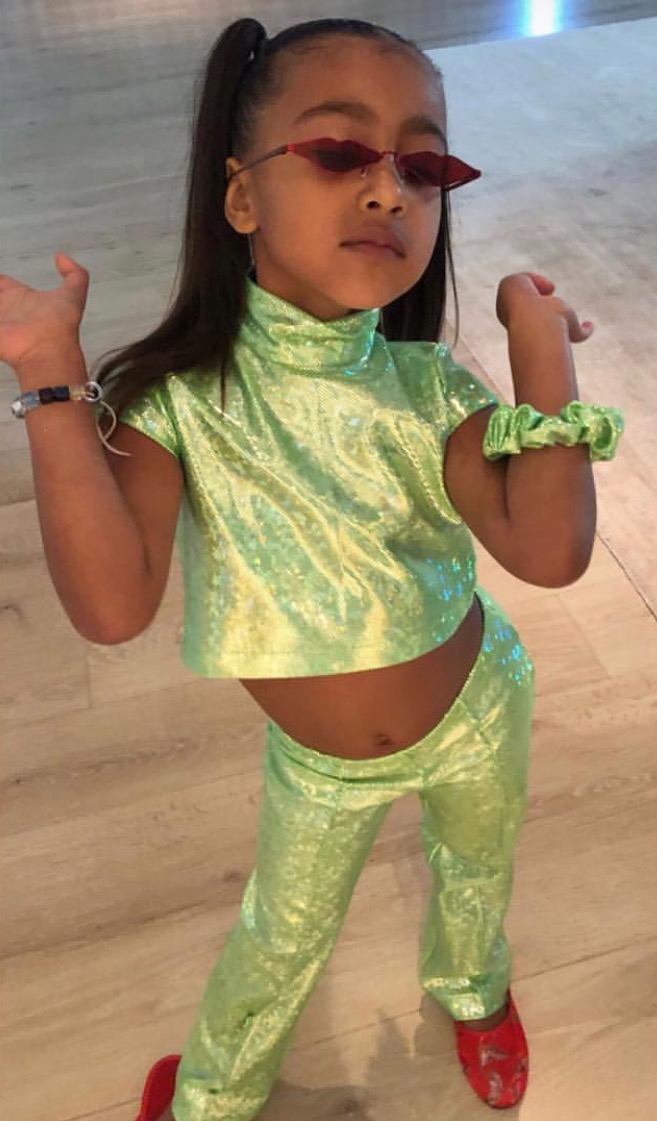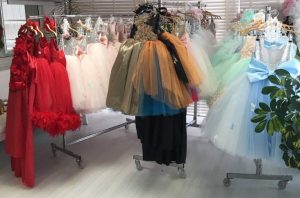
“I hate that Kim straightens North’s hair. She’s a mixed child and she should embrace her natural hair. Idk If I have a mixed child I would want them to embrace their natural hair and not fall under the pressure of having to have “straight” hair to look nice”, another commented.
The act of ridiculing a child’s appearance is, of course, problematic at the best of times. And I speak from experience when I say that there’s enough innate difficulty in navigating the parameters of a biracial identity without policing whether or not we “should” wear our hair natural or not.
Furthermore, Kim Kardashian is a well-informed, mega-rich mother who probably makes very measured choices about who styles her daughter’s hair. And from the outside looking in, she isn’t doing too bad: North is sporting a luscious, full mane that’s rarely altered from its natural state.
But the furious Twitter debate that ensued following the six-year-old’s slicked-back look highlights the relevance of discussions around black hair, mixed families, cultural appropriation and identity.
As many within the black community well know, hair has always been a highly politicised issue. It’s due in the main to the lasting legacy of a Eurocentric beauty hegemony; hundreds of years of elevating the type of hair which falls, flows and swishes over that which curls, coils or defies gravity.
Today, black hair products are often relegated to specialist shops and “ethnic” sections of supermarkets. Black women are still discriminated against in school and at work for daring to reveal their hair in its natural glory, and the ubiquity of whiteness in the hair world is such that black women still spend six times as much on their hair than Caucasian women, according to L’Oreal.
There’s been a huge shift in the acceptance of natural, black styles in the mainstream with a hair movement led mainly by black and mixed women on social media. But the debate around North’s hair is made all the more complex because she’s a mixed child with a white-passing mother, and cousins (Khloe, Kylie) who are routinely condemned for their many hair innovations that borrow from black and African communities without any acknowledgement of their cultural significance or the struggles and discrimination endured by the women who originally wore them.
In January 2018, for example, Kim came under fire for cultural appropriation after posting images of herself on Instagram wearing her hair in blonde Fulani braids (a type of cornrow style which originates from West Africa) and calling them “Bo Derek braids” after the white actress of the same name who wore them in the 1979 film 10. Then she posted another photo of herself during an online backlash, which stated she gave “zero f***s” about the negative comments. Last night, at the MTV Movie and TV Awards, she reiterated the same message, arriving in a similar hairstyle which, this time, was black in colour.
On an old episode of Keeping Up with the Kardashians, Kim claimed she didn’t know how to style her then three-year-old daughter North’s hair and later took braiding lessons so she could fully help North embrace her biracial identity. “North is so proud of her curly hair, and she’s very opinionated on how she wants to wear [it],” Kim reportedly said in the episode. “As a mum, you don’t wanna have to tell her, ‘I don’t know how to do your hair’. It’s such a prideful thing to make her look pretty and make her look confident; it’s important to me.”
Although Kim’s given her daughter the straightening treatment at six years old, she’s also shown herself to be conscious of an identity issue that likely affects so many other mixed families around the world – the disconnect that some mixed children feel from parents who don’t share their hair or skin-tone. It’s just a bit disheartening that Kim then feels the need to continually erase black women from their own beauty narratives with the way she styles her own hair.
Although people often conflate the hair-related experiences of black, white and mixed women (step forward Shea Moisture), hair does exist in a hierarchy of privilege, and the closer its proximity to whiteness, the greater its visibility and acceptance. Perhaps it’s coming to realise this – not the occasional blow-dry – that will have the most adverse effect on North West, as she grows up.
By Independent





